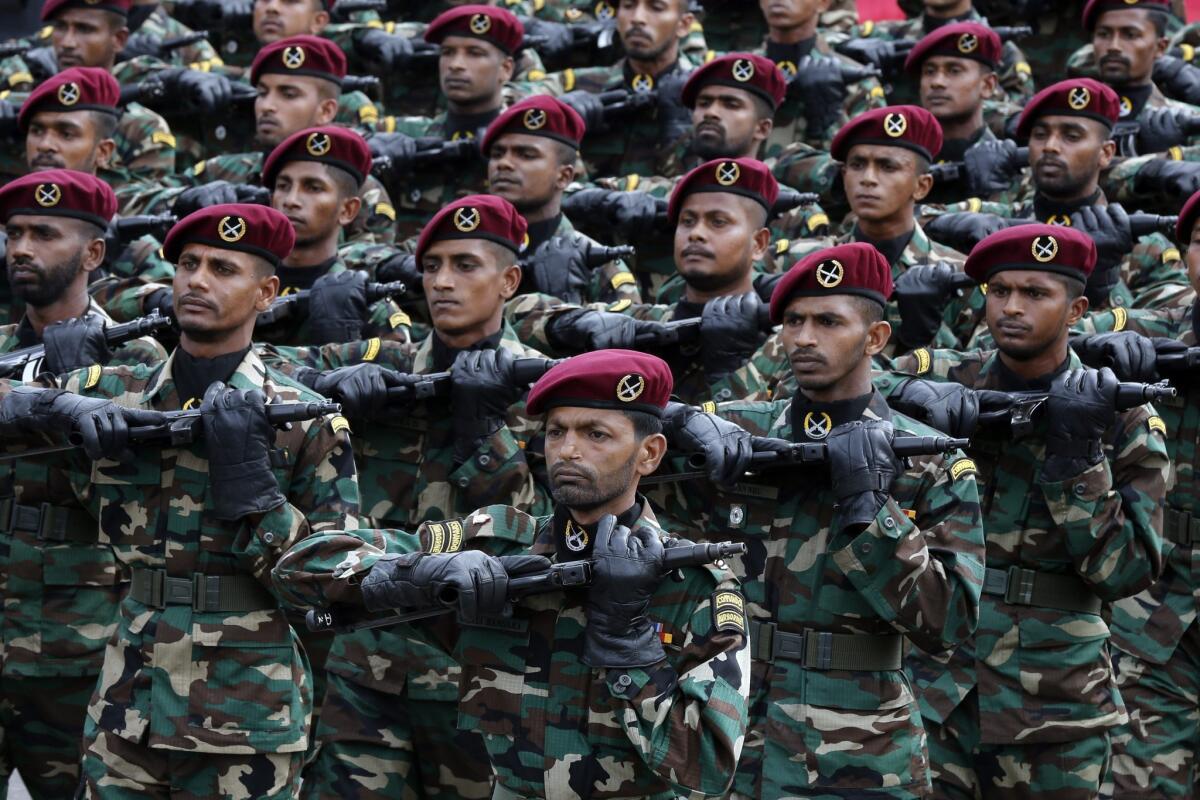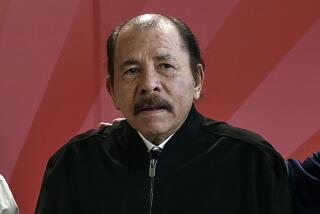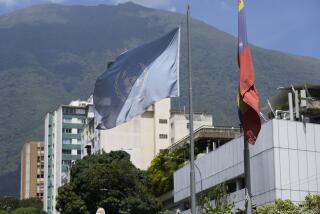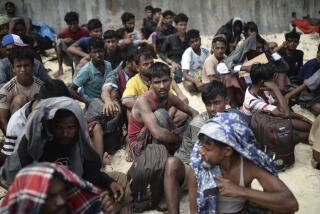U.N. delays report on Sri Lanka war crimes

The United Nations’ top human rights official agreed Monday to delay the release of a long awaited report on alleged atrocities during the Sri Lankan civil war, saying the country’s new government has offered “clear commitments” on cooperating with his office for the first time.
Sri Lankan officials had requested the report be deferred on the grounds that President Maithripala Sirisena, who took office last month, was prepared to launch a domestic inquiry into alleged war crimes, including the deaths of thousands of civilians in the months before the fighting ended in 2009.
U.N. High Commissioner for Human Rights Zeid Raad Al-Hussein said he decided to grant a “one time only” postponement for six months to give Sirisena’s government a chance to make good on its pledges to account for the war dead. The report, originally due in April, will be published by September, Zeid said.
“This has been a difficult decision,” Zeid said in a statement. “There are good arguments for sticking to the original timetable, and there are also strong arguments for deferring the report’s consideration a bit longer, given the changing context in Sri Lanka, and the possibility that important new information may emerge which will strengthen the report.”
The United States and others have called for an international inquiry since 2011, when a preliminary U.N. report found that as many as 40,000 civilians had died as Sri Lankan forces quashed a three-decade fight for an ethnic homeland by Tamil Tiger rebels.
Last year, the U.S. backed a U.N. resolution that established a three-member panel of experts to investigate the allegations. But former Sri Lankan President Mahinda Rajapaksa refused to cooperate with the inquiry or to launch a credible domestic probe, fueling anger among minority Tamils and alienating many of the country’s allies.
In January, Sirisena unseated Rajapaksa in a surprise election result and immediately set about repairing the island nation’s international reputation. He has pledged to release political prisoners still being held from the war years without charges and release lands that Sri Lankan forces seized from minority Tamil and Muslim civilians.
Sirisena’s government also promised to create a domestic mechanism to bring to justice those responsible for an array of alleged war crimes, including mass killings of civilians, torture, sexual assault and forced disappearances.
Foreign Minister Managala Samaweera, visiting Washington last week for talks with Secretary of State John F. Kerry, said the government was “ready to ensure that those who have violated human rights in Sri Lanka will be brought to justice through such a mechanism.”
U.S. officials quietly backed the delay, saying that Sirisena’s government needed time to make good on its pledges. Sri Lankan officials also warned the State Department that if the U.N. report were released, it could stoke resentment among Rajapaksa supporters, possibly hurting Sirisena’s coalition government’s chances in upcoming parliamentary polls.
Some experts also worried privately about whether the U.N. report was ready to be released. The panel of experts was selected only eight months ago and was not allowed to enter Sri Lanka, raising questions about the credibility of its findings.
Critics of the government say that previous attempts by Sri Lanka to establish domestic inquiries into the violence have failed. A Lessons Learnt and Reconciliation Commission established by Rajapaksa issued a report in 2011 but was widely criticized for being biased toward government forces, and its recommendations were never implemented.
Many in Tamil-dominated northern Sri Lanka, where the Tamil Tigers based their bloody campaign to create a Tamil Eelam, or homeland, say an international inquiry is necessary.
“The Tamil people expected justice from the United Nations and thought the report might be the basis for resolving our problems,” said Suresh Premachandran, president of the Tamil National Alliance, a confederation of Tamil political parties. “Unfortunately, justice has been delayed. We don’t know whether it will be denied.”
For more news from South Asia, follow @SBengali on Twitter
More to Read
Start your day right
Sign up for Essential California for news, features and recommendations from the L.A. Times and beyond in your inbox six days a week.
You may occasionally receive promotional content from the Los Angeles Times.







